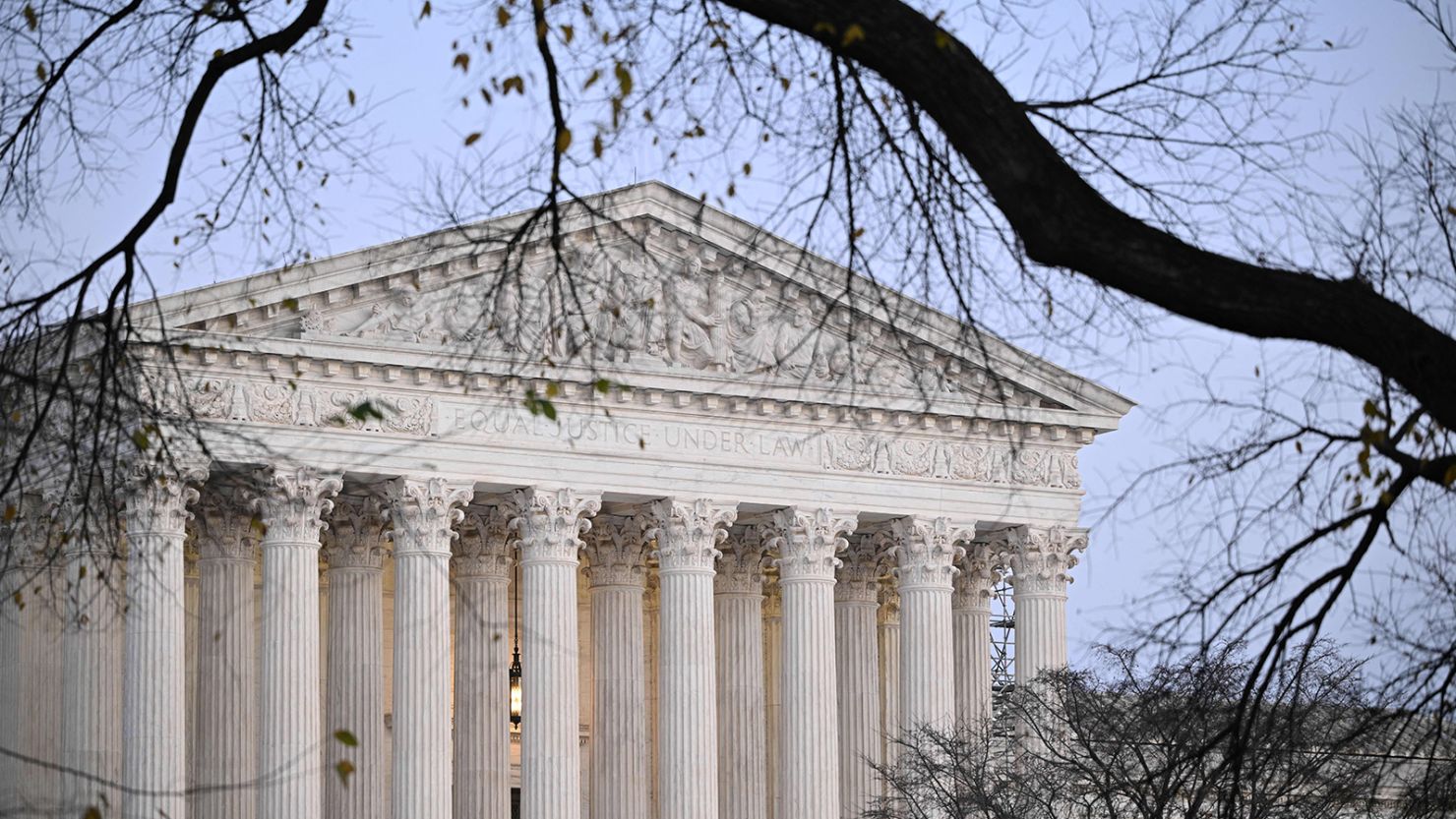Tax Case In Supreme Court May Impact Wealth Taxes And Biden's Plans
A tax case in Supreme court may impact wealth taxes and Biden's plans. The case, known as Moore vs the United States, revolves around a provision in the Tax Cuts and Jobs Act of 2017 and could have far-reaching consequences, impacting both the existing tax code and future attempts to impose certain types of wealth taxes.
Author:Darren McphersonReviewer:Camilo WoodDec 05, 202330.6K Shares601.7K Views

A tax case in Supreme court may impact wealth taxes and Biden's plans. The case, known as Moore vs the United States, revolves around a provision in the Tax Cuts and Jobs Act of 2017 and could have far-reaching consequences, impacting both the existing tax code and future attempts to impose certain types of wealth taxes.
This legal battle is not just a financial tussle; it's a clash with significant political and ideological implications.
Background: Tax Cuts And Jobs Act Of 2017
The focal point of the case is a measure within the Tax Cuts and Jobs Act, passed by Republicans in Congress in 2017. This provision created a one-time transition tax aimed at shareholders of certain foreign corporations, primarily owned by Americans.
The tax, designed to address undistributed profits accrued between 1986 and the end of 2017, is anticipated to generate a substantial $340 billion in revenue over a decade.
Charles and Kathleen Moore, investors in an India-based company, found themselves facing a $15,000 tax bill due to this provision. However, the Moores contest that the business reinvested its earnings, and they never received any distribution.
Their argument centers on the violation of the 16th Amendment, which grants Congress the power to tax income. Despite their stance, both a federal district court and the 9th US Circuit Court of Appeals ruled against them.
Conservative Organizations Weigh In
Several conservative organizations have filed amicus briefs, supporting a broader interpretation that suggests the 16th Amendment requires income to be realized for taxation.
This perspective raises concerns about the potential for federal taxation of wealth, creating a battleground that goes beyond the specific transition tax in question.
The Justice Department counters the Moores' argument, asserting that the transition tax is constitutional.
According to the government, the 16th Amendment doesn't limit Congress to taxing only realized gains, allowing for the taxation of undistributed profits.
Broader Implications On Taxation
While the Supreme Court could limit its decision to the transition tax, a ruling favoring the Moores could introduce uncertainty into the nation's tax code.
Such a decision might lead to a cascade of lawsuits challenging provisions that tax unrealized or undistributed income, measures often aimed at preventing tax avoidance.
Democratic leaders, including President Joe Biden, Senators Elizabeth Warren, Ron Wyden, and Bernie Sanders, have proposed various taxes targeting the wealthy to fund their spending plans.
These proposals include taxes on annual increases in the value of unsold assets (unrealized capital gains) and a tax on the net worth of the uber-wealthy.
President Biden's "Billionaire Minimum Income Tax" and Senator Wyden's "Billionaires Income Tax" are notable examples.
Political Landscape And Future Tax Legislation
While these proposals face challenges in the current divided Congress, a ruling in favor of the Moores could complicate future attempts to pass similar legislation.
The case could set a precedent that makes it challenging to implement wealth taxes or taxes on unrealized gains, raising questions about the fairness of the tax system.
The case has also brought ethical concerns to the forefront, with questions about the Moores' representation and the accuracy of information presented in court filings.
Additionally, interactions between Justice Samuel Alito and a lawyer representing the Moores have raised questions about impartiality, prompting calls for recusal.
Final Words
As the Supreme Court delves into Moore vs. the United States, the implications extend beyond the financial realm.
The decision could influence the trajectory of tax policies, shape the debate on wealth taxation, and determine the extent of Congress's power to tax income, especially in the context of unrealized or undistributed gains.
The outcome may well become a pivotal moment in the ongoing struggle over how the nation approaches taxing its wealthiest citizens.

Darren Mcpherson
Author
Darren Mcpherson brings over 9 years of experience in politics, business, investing, and banking to his writing. He holds degrees in Economics from Harvard University and Political Science from Stanford University, with certifications in Financial Management.
Renowned for his insightful analyses and strategic awareness, Darren has contributed to reputable publications and served in advisory roles for influential entities.
Outside the boardroom, Darren enjoys playing chess, collecting rare books, attending technology conferences, and mentoring young professionals.
His dedication to excellence and understanding of global finance and governance make him a trusted and authoritative voice in his field.

Camilo Wood
Reviewer
Camilo Wood has over two decades of experience as a writer and journalist, specializing in finance and economics. With a degree in Economics and a background in financial research and analysis, Camilo brings a wealth of knowledge and expertise to his writing.
Throughout his career, Camilo has contributed to numerous publications, covering a wide range of topics such as global economic trends, investment strategies, and market analysis. His articles are recognized for their insightful analysis and clear explanations, making complex financial concepts accessible to readers.
Camilo's experience includes working in roles related to financial reporting, analysis, and commentary, allowing him to provide readers with accurate and trustworthy information. His dedication to journalistic integrity and commitment to delivering high-quality content make him a trusted voice in the fields of finance and journalism.
Latest Articles
Popular Articles